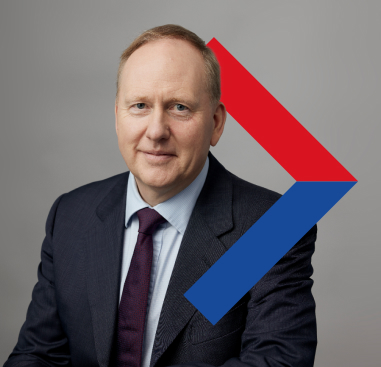Suggested Search
Financial markets have been erratic lately, understandably causing some concern for those of us with super and investments. While dips and major market events are a common feature of investing, markets generally trend upwards over time. Find out what’s been going on this time around and how we’re working to protect your super and investments.
Most super funds invest in sharemarkets to help your money grow over in the long term. So when markets see-saw, so do super and investment balances and returns.
While this can be worrying, it’s important to remember that although the value of investments may go up and down at different times, markets tend to recover and grow over the long term. So it’s important to keep your long-term investment goals in mind.
Plus, the CFS Investments Team has been preparing for this time of unpredictability for several months to minimise the effects. For example, we have taken some actions to reduce our exposure to the US, specifically US large cap technology.
Hear from our Chief Investment Officer Jonathan Armitage on what's been happening in global markets and how the CFS Investments Team has taken action to protect your investments.
Hello. My name is Jonathan Armitage. I'm the chief investment officer at Colonial First State.
In recent weeks, we have seen the Trump administration impose tariffs on a range of its trading partners, ranging from 10% here in Australia to between 35 and 40% to a number of its Asian trading partners.
This has impacted market expectations to a much greater degree, partly because markets have been anticipating that the average rate of tariffs would be around 10%, whereas actually what was announced last week was closer to 25% across the board.
This is raised concerns about the future growth, not just in the US, but also across Europe and the rest of the world, and also raise the possibility that inflation, and therefore interest rates, would be much higher than investors had previously anticipated.
In recent months, the CFOs investment team had been looking at ways that we could mitigate potential volatility in our investment portfolio. We've made some changes by reducing our exposure. First of all, to US equities and then more recently reducing our exposure to US technology companies, primarily driven by concerns over the elevated valuations that you'd seen in those securities.
We've also made some changes in our fixed income portfolios by allocating more money to domestic fixed income here in Australia, where yields have been a lot more attractive than you'd seen in other parts of the world.
It is natural that investors would be concerned about some of the volatility that we have seen in recent days. However, it's important to remember that superannuation is a long term investment.
History has shown that despite the volatility that we may see from time to time, holding the course and maintaining your investments for the longterm serves the superannuation members much better than trying to time markets in the short term.
What’s happened recently?
On 3 April, President Donald Trump announced the US would place tariffs on goods imported into the US from countries around the world. Major global economies and markets had been preparing for the announcements, but the tariffs imposed on some countries were bigger than expected. As a result, sharemarkets in the US and across the world fell sharply in the days afterwards, including the Australian Stock Exchange.
Then, on 10 April, President Trump announced a 90-day pause before the higher tariffs on goods imported from more than 75 countries would come into effect.
Global sharemarkets including the Australian Stock Exchange rose strongly on the news, largely erasing falls in previous days.
What is a tariff?
A tariff is a tax added to the cost of goods imported from a particular country or countries. It is paid to the government where the goods are being imported.
Tariffs are often used to protect domestic industries by increasing the price of foreign-made competitor products, or to raise revenue.
The cost of those items to the public will generally increase by a similar amount to the tariff.
What does this mean for markets and investments?
The US tariffs are expected to slow global trade and push up the price of some things, which could cause inflation to rise.
This could result in the Reserve Bank of Australia cutting the interest rate several times this year to prevent the economy from slowing down too much.
In the short term, you may see sudden rises and falls in the performance of investments.
Short term volatility in response to political announcements and other geopolitical events is a common feature of investment markets.
While difficult to forecast, history shows us that markets do recover from disruptive influences – for example, from the Global Financial Crisis and the COVID-19 pandemic.
What led to this?
Since Trump’s second presidency began, uncertainty has emerged about US policy in the areas of tariffs, defence and other critical areas of government spending.
In recent months, shares have been quite weak, particularly US technology stocks. This group of stocks was optimistically priced after two years of strong growth, and therefore most at risk of uncertainty in the US market.
This has unsettled businesses amid concerns the US economy could slow. It has also fed into uncertainty in global investment markets, including the Australian sharemarket.
What does this mean for me?
As global financial markets move up and down, the value and returns of your super and investments may also change in the short term.
While this can be concerning, history shows that markets rise over time. So it’s important to avoid knee-jerk reactions, keep your long-term savings and investment goals in mind and carefully consider before making any changes to your investment strategy.
It’s understandable at times like these that some members think about changing how their money is invested. As this chart shows, the long-term trend across major investment types is positive, with shares experiencing more volatility but generating higher returns than more conservative options such as cash.
While past performance is not a guarantee of future performance, historically more time invested in the sharemarket has meant a higher return on investment.
How different investment types have performed over 20 years

It’s also worth noting that investment performance has generally been strong over the past two years, meaning the value of your investments or super may have been relatively high.
How is CFS managing my investments to reduce risk?
The CFS Investment team is experienced at managing unpredictability and has been putting measures in place to reduce the impact of this increased market uncertainty for many months.
We’ve been actively positioning our portfolios to reduce the effect of these risks, as well as to take advantage of the opportunities that we see coming out of this period.
Our focus has been on diversifying investments, moving away from very large-cap technology companies, increasing our exposure to global smaller companies, boosting our investment in emerging markets, and broadening our exposure to income paying assets like credit.
We are monitoring the performance of European equities, which have performed better than US equities since the US election.
We have also reallocated funds away from global fixed income to domestic fixed income and private credit, as we believe those areas offer better income stability in uncertain times.
These shifts aim to ensure that we focus on stable cash flows and also reduce our reliance on very high-growing sectors, which may be vulnerable at times of market fluctuation.
Do I need to do anything?
As with any significant market event, it’s best to avoid impulse reactions, but to take a long-term view.
However, if you are concerned about your investment strategy, speak to your financial adviser. If you don’t have an adviser, you can book a free consultation with our guidance team or use our find an adviser service to locate a financial adviser near you.
If you have any questions about your super or investments, call us on 13 13 36, Monday to Friday 8:30am – 6pm, Sydney time.
What’s next?

Still have questions? What to do
Book a call with our guidance team, or call us on 13 13 36, Mon-Fri, 8.30am-6pm AEST.

Staying calm when markets move
Why it pays to stay calm in the face of short-term market uncertainty.
Market volatility and your super
It's natural to feel concerned when markets are volatile. Here's what to know.
Unleash in ways you never thought possible
Get in touch
Get in touch with us online or call us
8:30am to 6pm AEST Monday to Friday.
Find a financial adviser
Use our tool to find professional financial advice,
local to you.
Download mobile app
Track your balance and see your
transactions history from anywhere.
Avanteos Investments Limited ABN 20 096 259 979, AFSL 245531 (AIL) is the trustee of the Colonial First State FirstChoice Superannuation Trust ABN 26 458 298 557 and issuer of FirstChoice range of super and pension products. Colonial First State Investments Limited ABN 98 002 348 352, AFSL 232468 (CFSIL) is the responsible entity and issuer of products made available under FirstChoice Investments and FirstChoice Wholesale Investments. This document may include general advice but does not consider your individual objectives, financial situation, needs or tax circumstances. You can find the Target Market Determinations (TMD) for our financial products at www.cfs.com.au/tmd, which include a description of who a financial product might suit. You should read the relevant Product Disclosure Statement (PDS) and Financial Services Guide (FSG) carefully, assess whether the information is appropriate for you, and consider talking to a financial adviser before making an investment decision. You can get the PDS and FSG at www.cfs.com.au or by calling us on 13 13 36.


